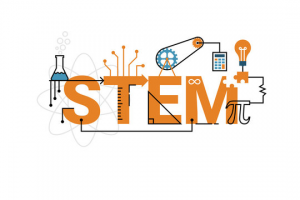
[Adobe Stock]
What are STEM projects?
They are projects in the fields of science, technology, engineering, and maths(STEM). Sometimes, these projects might combine any of the four disciplines too!
In STEM projects, there is heavy emphasis on innovation, problem-solving and critical thinking which are skills that we want to cultivate in our students. So we often include STEM projects into their education.
These STEM projects are often used to teach students concepts from the four disciplines and also serve as solutions to real-world issues!
Here are 5 STEM projects that tackle real-world problems that students can take part in.
Preventing Coastal Erosion
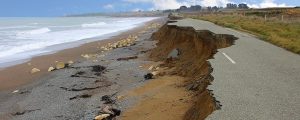
[DHI Group]
Coastal erosion is one of the topics under O level Geography – physical geography. Caused by climate change and global warming, coastal erosion is a significant threat.
The risks that come with it being property damage, degradation of plant and animal habitats and loss of land.
Thankfully, this project gives us a solution to this issue. In this project, secondary students design seawalls to protect a coastline from erosion, calculate wave energy and plan logistics.
This hands-on experience helps students to gain a better understanding of the solutions to their exam questions.
Growing Food During a Flood
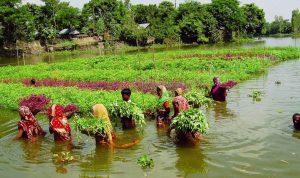
[Asian Scientist Magazine]
In schools, students are taught about hydroponics as a sustainable solution to agriculture either in primary school science (plant water system) or as an O level Geography topic (food resources). But it is also a solution to growing food during floods.
Floods are devastating; they cause severe damage to communities and one way is by destroying food and making it difficult to grow and replenish them. This is why this STEM project is so important.
The floating garden challenge allows farmers to cultivate plants on top of the flood by floating. This project can be done by students and even young children in kindergarten!
Just create a model of a floating structure to grow plants on and test if it can float in a bowl, path or pond.
Creating Clean Water
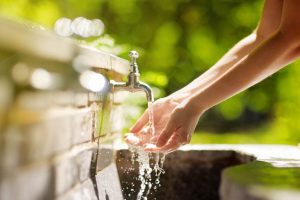
[17 Global Goals]
In O levels Science, water filtration is often tested – how you can get clean water from unfiltered water. And this STEM project is a great way for them to see how it works and get hands-on experience.
Having access to clean water is a privilege many of us have in Singapore, but this isn’t the case for many people overseas. Drinking unfiltered or contaminated water can lead to many issues. For example, parasites, diseases and many health issues like causing abnormal brain function.
The dirty water project serves to counter this issue. In this project, students can develop their own water filtration system to remove pollutants from the water. They will design, build and test it out and this can be done individually or in a group.
Cleaning Up an Oil Spill
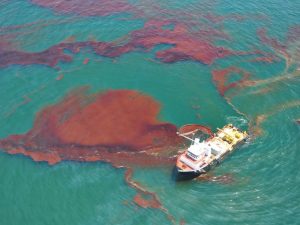
[Smithsonian Magazine]
Oil spills are commonly mentioned in students’ secondary school geography (pollution) and science (oil and density) classes. They are man-made disasters that pollute the oceans, affect sea life and damage the environment.
Large quantities of oil are released into the sea, and it is challenging to remove and has long-lasting effects. For example, it takes 15 years for the ecosystem to recover from a small spill.
This is why we need to find ways to effectively clean it up, like this ‘Oil: Clean It Up!’ STEM project.
This project is where students’ science concepts of oil and density come into play as they use the engineering design process to create, test, and improve oil spill kits in this project. They make it accessible and affordable for home use to corporate environmental clean-ups!
Constructing Solar Ovens
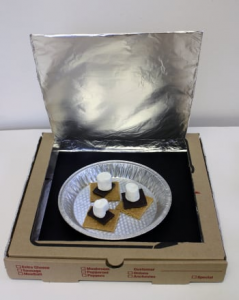
[Education.com]
In remote or impoverished areas, many people don’t have access to a working stove or oven to cook. Rather, it is a luxury mainly due to the lack of electricity.
But when they use traditional fireplaces and wood stoves, it causes air pollution. This results in a wide range of health issues like nose and throat irritation, headaches, fatigue and nausea.
This STEM project, however, gives us a solution to this. Use solar powered ovens to safely cook food. Students apply science concepts like heat energy, light, and reflection.
All to create a solar powered oven out of simple materials like aluminium foil, cardboard boxes and plastic wrap. This could also be done by students and young children in elementary school (parental guidance is advised).
Conclusion
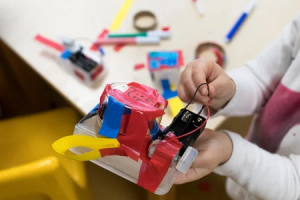
[123RF]
Many of these projects are already being applied in real life to solve the corresponding real-world problems. But if you are a parent or teacher, you can let your students or children try out these projects.
It encourages problem-solving and critical thinking and raises awareness of the global issues we face now due to global warming and climate change.
STEM Education in Singapore: A Complete Guide for Parents
Lack of 21st Century Skills – Why Your Child Struggles at School
